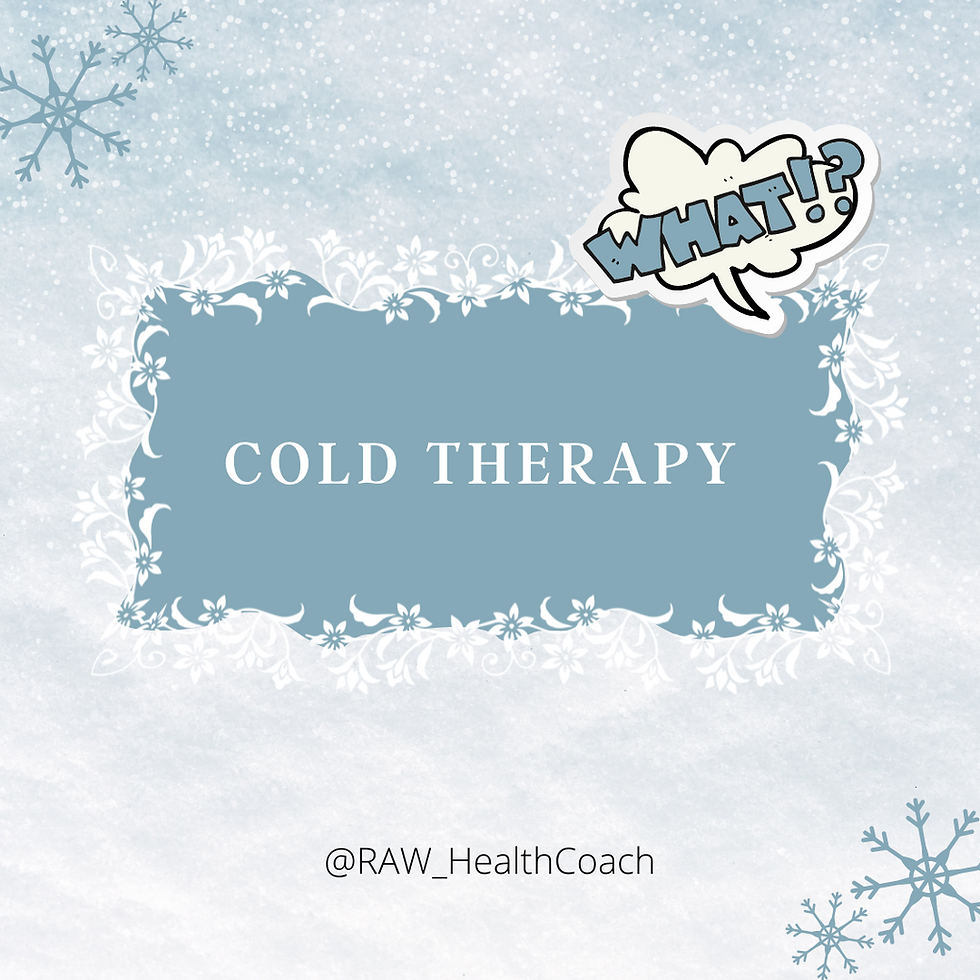Sun's Out, Go Out!
- Beth Holland
- May 26, 2021
- 3 min read

Summertime, one of my most favorite times of the year! I love being outside in the summer - going for early morning runs or walks around the neighborhood. Heading out to the lake to be on the water and going for fun family hikes are some of my favorite activities. I have always loved being outside and in nature. As a little girl I loved playing in our back yard, exploring the barns and pastures at both of my grandparent’s farms and spent hours at the horse barn. Many years later, I find myself longing to be outside to bask in the sun. I can feel a shift in my mood when I haven’t had enough sunlight. The feeling I gain from being outside and having the sunlight soak into my skin leaves me feeling incredibly energized and invigorated. Sun exposure is so important and beneficial to our health in so many ways. Yes, too much sun exposure can damage the skin causing basal cell carcinomas as well as other forms of skin cancers. It is important to find the right balance of sun exposure to gain the benefits and take proper precautions for your skin health.
Being outside for 15- 20 minutes of sun exposure, hitting your skin not just your eyes, can lead to: better bone health, boosts your immunity, stabilizes and increases your mood, allows for better sleep and can positively affect your blood pressure. Sunlight helps our bodies make Vitamin D naturally. Vitamin D is an essential nutrient the body needs in order to function properly and process calcium. Chronic or severe vitamin D deficiency can lead to malabsorption of calcium which can lead to bone demineralization causing osteomalacia and osteoporosis in adults. About 50% to 90% of vitamin D is absorbed through the skin via sunlight while the rest comes from the diet. Twenty minutes of sunshine daily with over 40% of skin exposed is required to prevent vitamin D deficiency. Effective sun exposure is decreased in individuals who use sunscreens consistently. However, when planning to have prolonged exposure (over 20 minutes) it is highly advised to use an SPF of at least 15 or greater in order to protect the skin from damage.
Not only does sunlight help with proper production of Vitamin D in order to protect our bones and immunity it also has a huge role in our mood. Sunlight has proven to help people overcome mood disorders such as seasonal affective disorder (SAD). It is thought that our ancient ancestors used sunlight or sunbathing as a remedy for both the mind and body. Sunlight triggers the brain to release the hormone serotonin, which can boost mood and promote feelings of calm. Numerous studies have found lower levels of vitamin D in people who have depression. Research has connected Vitamin D and its role in the production and regulation of serotonin and calcium in having a therapeutic impact on depression.
Sunlight can help regulate your circadian rhythm. Early morning sun exposure helps to set your internal clock allowing for your body to naturally become sleepy and tired in the evening once the sun sets. Circadian rhythm is a natural internal process that regulates sleep-wake cycle and repeats roughly every 24 hours. The circadian clock is most sensitive to light about an hour after your usual wake-up time in the morning and from about 2 hours before your usual bedtime at night and throughout the night. Trying to limit bright evening light 2 hours before bed will help your body sink into its natural rhythm and you will fall asleep, stay asleep and feel more rested in the morning.
As you can see proper sunlight exposure can help regulate your body’s natural circadian rhythm, help to establish better sleep, build better bone health and immunity, decrease depression or other mood disorders and overall leave you feeling restored, energized and invigorated to start your day! You can get 15-20 minutes of quality health benefitting sun exposure by taking a walk outside, driving with your windows open, eating a meal outdoors, or parking further away in order to sneak in a longer walk to your destination. Eating a diet rich in vitamin D will also help you achieve these same benefits especially during the winter months when it maybe more difficult to achieve the sun exposure we require.
What activities are you most looking forward to doing this summer in order to achieve your quality 15-20 minutes of Vitamin D?






Comments